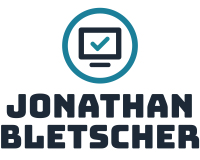As a manager, maintaining your health is essential not just for your well-being but also for effective leadership. When you’re short on time but committed to staying fit and healthy, you need strategies that are efficient and easily integrated into your busy schedule. Here are some effective ways:
- High-Intensity Interval Training (HIIT): This involves short bursts of intense exercise followed by a rest or lower-intensity period. A typical HIIT session can be as short as 15-30 minutes, making it a time-efficient way to get a full-body workout.
- Time-block for Exercise: Just as you’d schedule meetings, allocate specific blocks of time in your calendar for physical activity. This makes it an integral part of your day rather than something you’ll get to “if you have time.”
- Incorporate Movement into Daily Tasks: Take the stairs instead of the elevator, walk during phone calls, or hold standing or walking meetings. The key is to find opportunities to move throughout your day.
- Desk Exercises: There are several stretches and exercises you can do right at your desk, such as seated leg lifts, chair squats, or desk push-ups.
- Mindful Eating: Focus on quality over quantity. Ensure you’re consuming nutrient-dense foods, and avoid mindlessly snacking. Preparing meals or snacks in advance can also save time and ensure you’re eating healthily.
- Stay Hydrated: Drink enough water throughout the day. Keeping a water bottle at your desk can serve as a reminder.
- Practice Mindfulness and Meditation: Even a short 5-minute meditation can help reduce stress and improve focus. Several apps provide guided meditations specifically designed for busy individuals.
- Prioritize Sleep: Ensure you’re getting adequate sleep. Quality sleep helps in stress management, cognitive function, and overall health.
- Break Tasks into Manageable Steps: To reduce stress, break down larger tasks into smaller, more manageable steps and tackle them one at a time.
- Delegate: Recognize when to delegate tasks to your team members. This not only reduces your workload but also empowers your team.
- Set Boundaries: Ensure you have clear work-life boundaries. This might mean setting specific times when you’re unavailable for work-related calls or emails.
- Invest in Ergonomics: A proper chair, standing desk, or ergonomic keyboard can significantly impact your physical well-being during long work hours.
- Stay Socially Connected: Engage in social activities, even if brief. Interacting with loved ones or colleagues on non-work-related topics can be a mental refresher.
- Professional Development: Consider time-management or stress-management workshops. Continuously improving these skills can have long-term benefits for your health and efficiency.
By integrating these practices into your daily routine, you can maintain your health without a significant time investment. Remember, consistency is key. Even short, regular health and fitness activities can cumulatively have a profound impact on your well-being.


